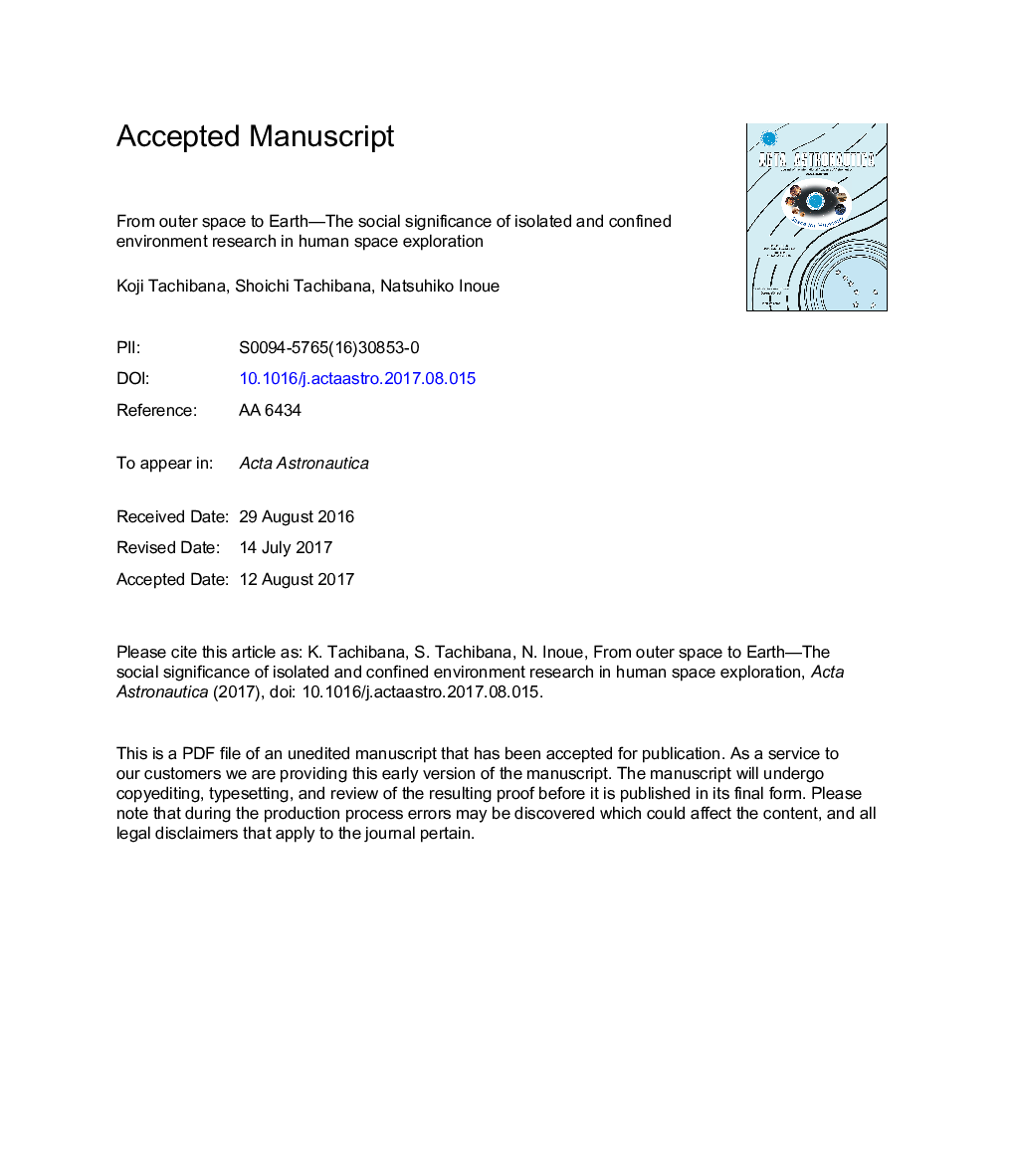| Article ID | Journal | Published Year | Pages | File Type |
|---|---|---|---|---|
| 5472118 | Acta Astronautica | 2017 | 29 Pages |
Abstract
First, we give an overview of the circumstances surrounding Japan's human space exploration program. Derived from the statements of such relevant parties as scholars, journalists, policy makers, and astronauts, this overview indicates that the main concerns about human space exploration in Japan are its social significance and cost-effectiveness (Section 1). Next, an overview of behavioral science-an essential field for human space exploration (referred to in this paper as space behavioral science) that provides support for astronauts-is presented from the perspective of stress research in isolated and confined environments (Section 2). We then give two examples of where such knowledge from space behavioral science research has been applied to terrestrial isolated and confined environments. One is JAXA's support in 2009 for people who were vulnerable to infection by a new strain of flu and accordingly placed in an isolated and confined facility under the Infectious Disease Law and the Quarantine Law. The other is NASA's support in 2010 for Chilean mine workers who were trapped 700Â m underground after a mining accident (Section 3). Based on these case studies, we illustrate the further social utility of such knowledge through a discussion of potential applications in other situations in Japan. Focusing on Japan for its geographical and social features in being an earthquake-prone archipelago and having the world's preeminent aging society, we show that refugees living in evacuation centers and people in an elderly-elderly homecare situation pose socially problematic situations specific to Japan. We then argue that space behavioral scientific knowledge can be applied to support people under these and other isolated and confined environments in various ways (Section 4). Finally, we demonstrate that such an application can be understood as an ethical contribution to Japanese society and that this contribution can be embedded in Japan's space policy (Section 5). We conclude that human space exploration can be a socially significant and cost-effective endeavor that is worthy of tax revenue expenditures because space behavioral science is highly likely to provide unique and useful knowledge to help address various social problems concerning terrestrial isolated and confined environments and support people in sufferings there.
Related Topics
Physical Sciences and Engineering
Engineering
Aerospace Engineering
Authors
Koji Tachibana, Shoichi Tachibana, Natsuhiko Inoue,
